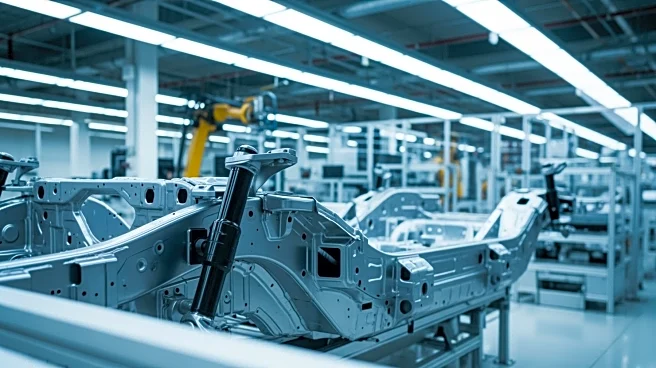What's Happening?
Tesla has announced plans to phase out Chinese-made parts in its U.S. manufacturing within two years. This decision is driven by ongoing trade tensions and tariff uncertainties between the U.S. and China.
Tesla aims to build a more resilient supply chain by sourcing parts from non-Chinese suppliers, including encouraging Chinese suppliers to relocate to Mexico and Southeast Asia. The move reflects broader industry trends as manufacturers seek to mitigate risks associated with global supply chain disruptions.
Why It's Important?
Tesla's strategy to decouple from Chinese suppliers highlights the impact of geopolitical tensions on manufacturing and trade. By reducing reliance on Chinese parts, Tesla aims to stabilize its supply chain and pricing strategy, potentially leading to cost savings and competitive advantages. This shift may influence other automakers and industries facing similar challenges, prompting a reevaluation of global sourcing strategies.
What's Next?
Tesla's transition to non-Chinese suppliers will require significant adjustments and investments. The company has set a deadline of 2027 for suppliers to comply, indicating a long-term commitment to supply chain resilience. Other automakers, like General Motors, are also exploring similar strategies, suggesting a broader industry shift away from Chinese manufacturing dependencies.








